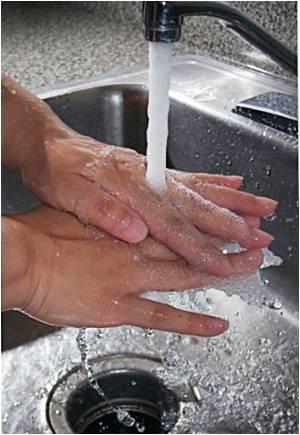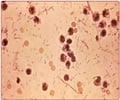People who wash their hands with contaminated soap from bulk-soap-refillable dispensers can increase the number of disease-causing microbes on their hands.

Zapka conducted the study along with scientists from BioScience Laboratories in Bozeman, Montana and the University of Arizona, Tucson.
Bulk-soap-refillable dispensers, in which new soap is poured into a dispenser, are the predominant soap dispenser type in community settings, such as public restrooms.
For their findings, Zapka and her colleagues investigated an elementary school where all 14 of the soap dispensers were already contaminated and asked students and staff to wash their hands, measuring bacteria levels before and after handwashing.
They found that Gram-negative bacteria on the hands of students and staff increased 26-fold after washing with the contaminated soap.
The study was published in the May issue of the journal Applied and Environmental Microbiology.
Advertisement









